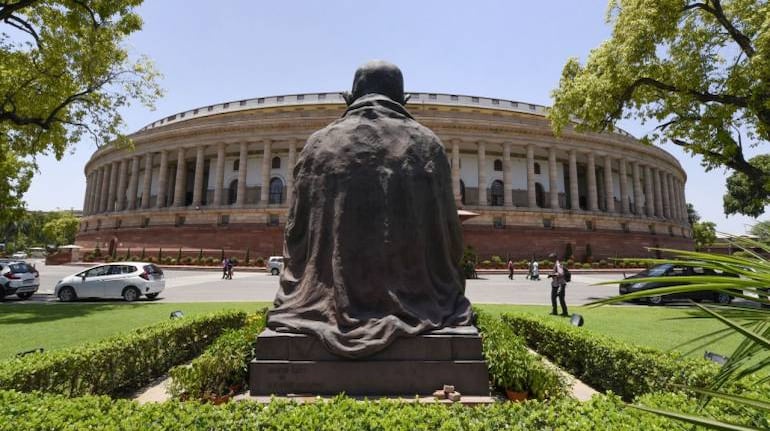



The Government of India is looking to onboard a leading HR consultancy firm to help it revamp the competency of the country’s bureaucracy and will allow it to study the organizational structures and the work allocation documents of seven key ministries and departments, including the Ministry of Finance and Ministry of Health.
This exercise will be part of the ambitious ‘Mission Karmayogi’ project of Prime Minister Narendra Modi that was announced last September. To start off, the consultant will be asked to study the organizational structures and the work allocation documents of seven key ministries or departments of the Government of India – namely, the Ministry of Finance (Department of Economic Affairs), the Ministry of Electronics & Information Technology, the Ministry of Rural Development, the Ministry of Health, NHAI, Ministry of Environment and Forests, and Department of Personnel and Training (DoPT). The Health Ministry has been under focus during the COVID crisis.
The DoPT has issued a Request for Proposal (RFP) two days ago for hiring a private consultant with extensive experience in HR consulting and competency development, as per the bid document reviewed by News18. The brief for the consultant is to design and develop an FRAC (Framework of Roles, Activities & Competencies) for the central government with a focus on molding a “fit-for-future civil service” that can deliver to larger social and economic mandates. The bidder will be required to carry out an “end to end FRACing exercise” for the Ministry of Personnel, Public Grievances & Pensions (DoPT) and the Ministry of Finance (Department of Economic Affairs), the document specifies.
“The unique challenges and opportunities in India, along with an unprecedented digital penetration and IT literate workforce, have necessitated the creation of a framework that is unique to the world and has not been attempted before,” the bid document says, detailing the exercise. The idea is that since every government post has roles and activities associated with it, accomplishing each activity needs certain competencies. “FRAC will map the roles and activities corresponding to every government position with their desired competencies across behavioral attributes, functional skills, and domain knowledge. Each competency will have multiple levels of proficiency, organized in a stepped manner depicting gradual progression from one level to the other,” the document says. This involves officers gaining new competencies and evolve as they progress in their career.
“Through the FRAC, officials will have visibility of the roles, activities, and competencies required to effectively deliver on the outcomes expected from them with respect to their current or future positions in government. This will enable the establishment of testing arrangements to assess the extent to which a person occupying a position has these competencies and consequently determine the competency gaps that need to be addressed. Largely, this will be done through iGOT Karmayogi, an online comprehensive learning platform cum marketplace to deliver online training, linked to FRAC,” the document says.
It adds that since India is “on the cusp of major transformation”, the country needs to achieve and sustain a high rate of GDP growth to meet the aspirations of the Indian public which vastly consists of a young population, and civil service reforms are a pillar for that.
What the Consultant Will Do
The hired consultant will help the government set up and operationalize a FRAC Center of Excellence at the Institute of Secretariat Training & Management and develop strategy and operating processes for FRAC. This will involve assessment of global practices, testing of hypothesis in the local context, focused group discussions, workshops with thought leaders and industry experts, and studying the organization structures and work allocation documents at different departments.
The FRAC will define three types of competencies, as per the document. First, will be behavioral competencies that describe the values and strengths that help officials perform effectively, including attitudes like problem-solving, decision making, and networking. The second will be functional competencies like the application of skills and knowledge to perform effectively across domains and positions through project management, time management and communication. The third will be domain competencies, like officials working at the Central Board of Indirect Taxes and Customs (CBIC) requiring competencies in indirect taxation, customs, and vigilance planning.
The consultant will also undertake a detailed review of UNDP’s competency framework “to ensure the relevance of alignment of behavioral competencies with the changing context of Government of India and expected key behaviors from civil servants”. This will lead to the preparation of “Dictionary of Behavioral Competencies, Dictionary of Functional Competencies and Dictionary of Domain Competencies”, the document says.
The consultant will then be expected to do a detailed articulation of expected outcomes and accountabilities for every role of the seven ministries/departments, define the role details with the unique responsibilities, coordination, and division of work and identify the competencies and skills required for each role. “These competencies and skills should be elaborated to ensure that the occupant of the position is aware of his or her responsibilities and his or her superior also aware of the expected outcomes of the subordinate,” the document says.
Discover the latest Business News, Sensex, and Nifty updates. Obtain Personal Finance insights, tax queries, and expert opinions on Moneycontrol or download the Moneycontrol App to stay updated!
Find the best of Al News in one place, specially curated for you every weekend.
Stay on top of the latest tech trends and biggest startup news.